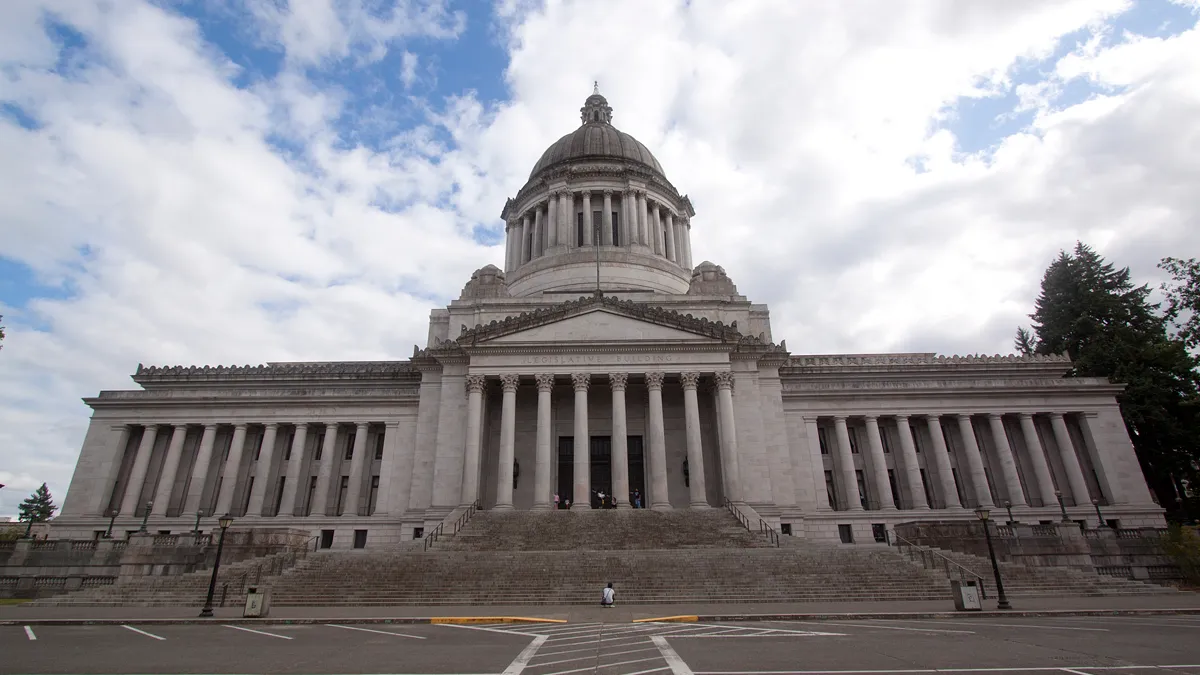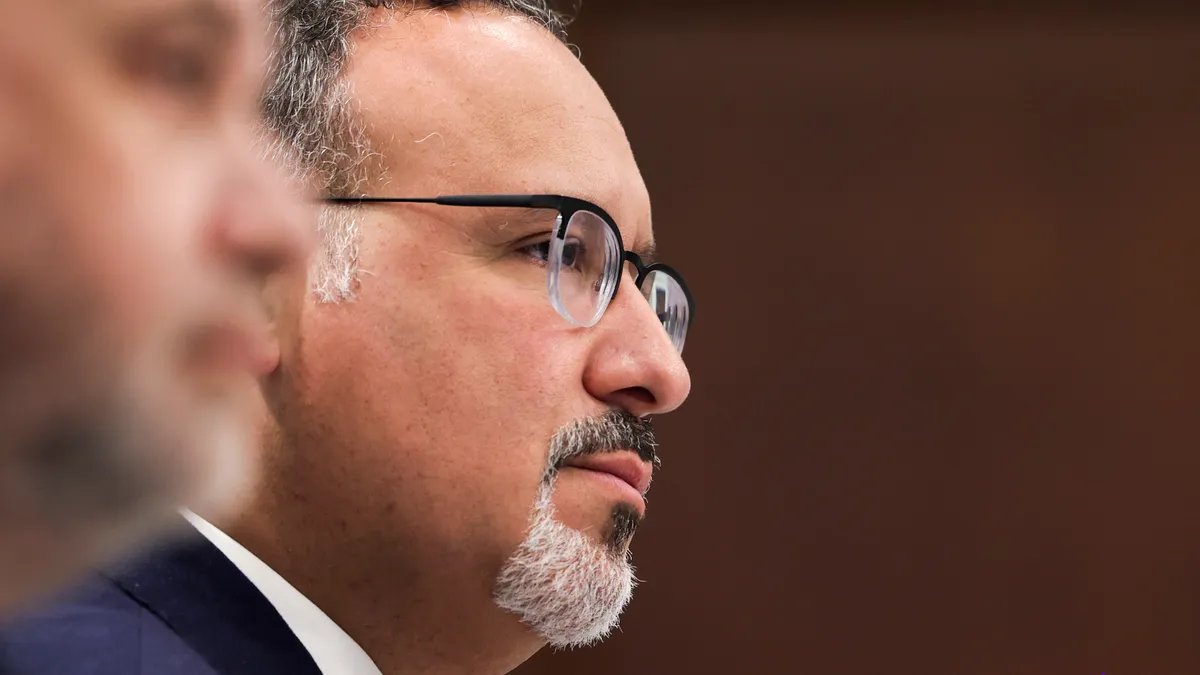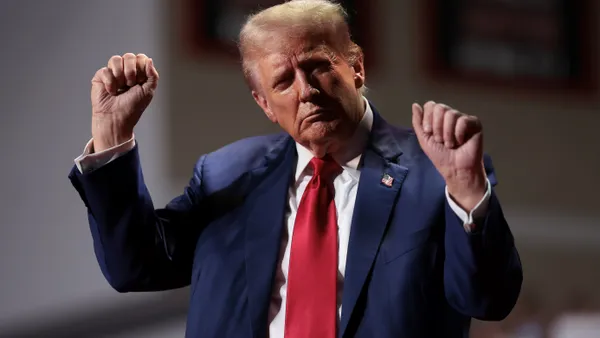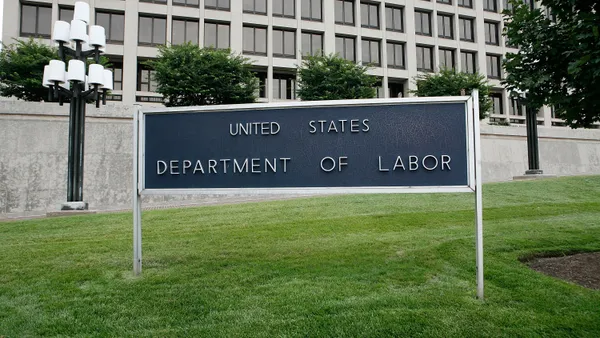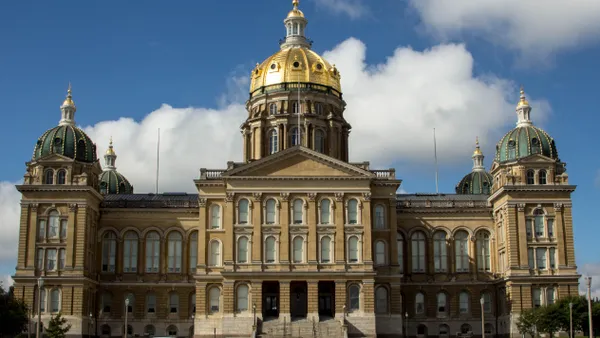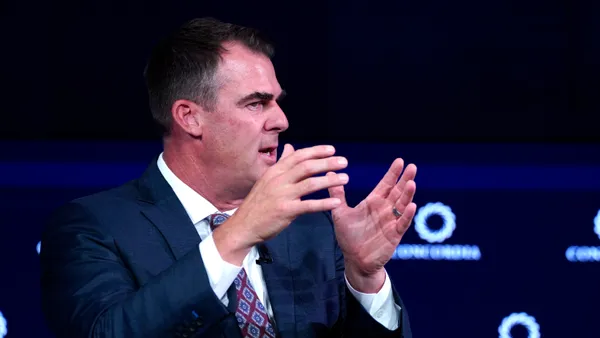Dive Brief:
- Lawmakers in Washington state passed a bill that will provide free tuition at two- and four-year public institutions for students from families making $50,000 or less annually and partial discounts for students whose families earn up to $90,000, The New York Times reported.
- Called the Workforce Education Investment Act, the effort relies on a unique funding mechanism that will raise nearly $1 billion in four years by placing a surcharge on businesses in the state that have "highly skilled workers," according to The Times. The biggest tech companies there could pay up to $7 million annually.
- The legislation awaits the signature of Democratic Gov. Jay Inslee, who has voiced support for increasing financial aid. The bill has garnered support from policy analysts, as well as local tech giants such as Microsoft and Amazon.
Dive Insight:
Washington's free college plan has been applauded for its unique funding structure. Temple University professor Sara Goldrick-Lab, an expert in college aid, told the Seattle Times that it is "pretty much the most progressive state higher ed funding bill" that she's seen for years.
The bill goes further than some other free college plans. For instance, it would collect $300 million over a two-year period in order to invest in fields such as computer science and health care at the state's public colleges, as well as shore up their finances for the next recession. It also funds more apprenticeships and expands counseling and advising services.
Nationwide, the idea of free college is gaining traction. There are more than 200 programs that offer some version of free college at the community college level, MarketWatch reported last fall. In addition, some 20 states offer free college, while 23 states are considering free college bills in 2019.
Some Democratic presidential candidates back the free college movement. For instance, Sen. Elizabeth Warren recently spelled out a plan that would cancel some college debt for households that make less than $100,000 annually and that would provide free tuition at public two- and four-year colleges by imposing a tax on those with a net worth of more than $50 million.
Other presidential hopefuls, however, don't go as far. For example, Sen. Amy Klobuchar, a Democrat from Minnesota, said she does not support free college at four-year institutions, but rather wants to see an expansion of Pell Grants and more options for refinancing student loans. Meanwhile, some have noted that free college efforts often don't address expenses beyond tuition, such as food and housing, that can price low-income students out of attending.
Last year, The Education Trust laid out eight ways to better design free college programs. They include covering students fees, including bachelor's programs and allowing older students to be eligible.
Others say free college efforts don't address concerns about the value of the degree obtained. Earlier this year, Mike Shirkey, a state senator in Michigan, argued that a plan by Democratic Gov. Gretchen Whitmer to increase degree attainment in part by providing free community college is "meaningless" because it doesn't focus on training students for in-demand jobs, Bridge Magazine reported.


